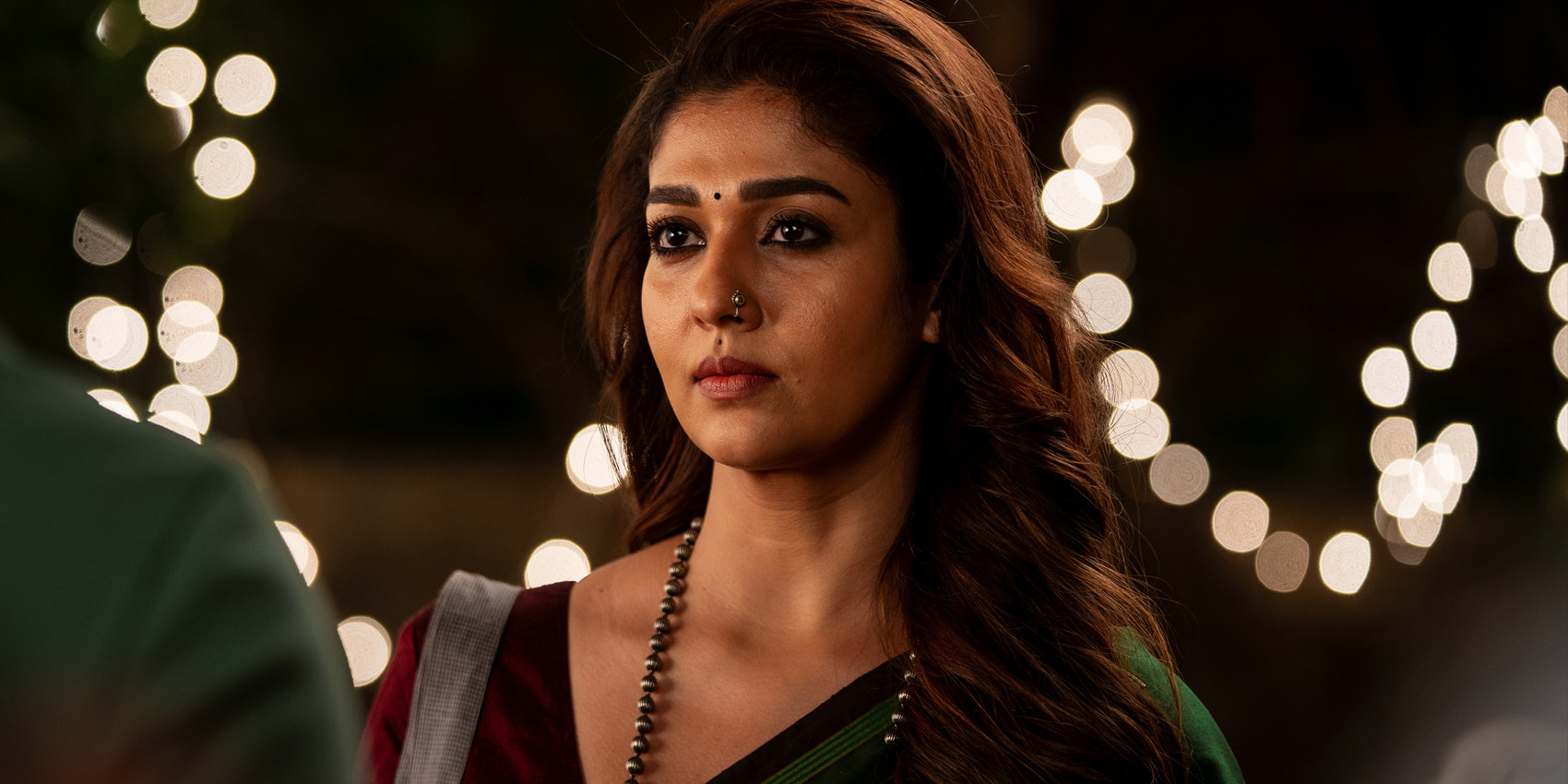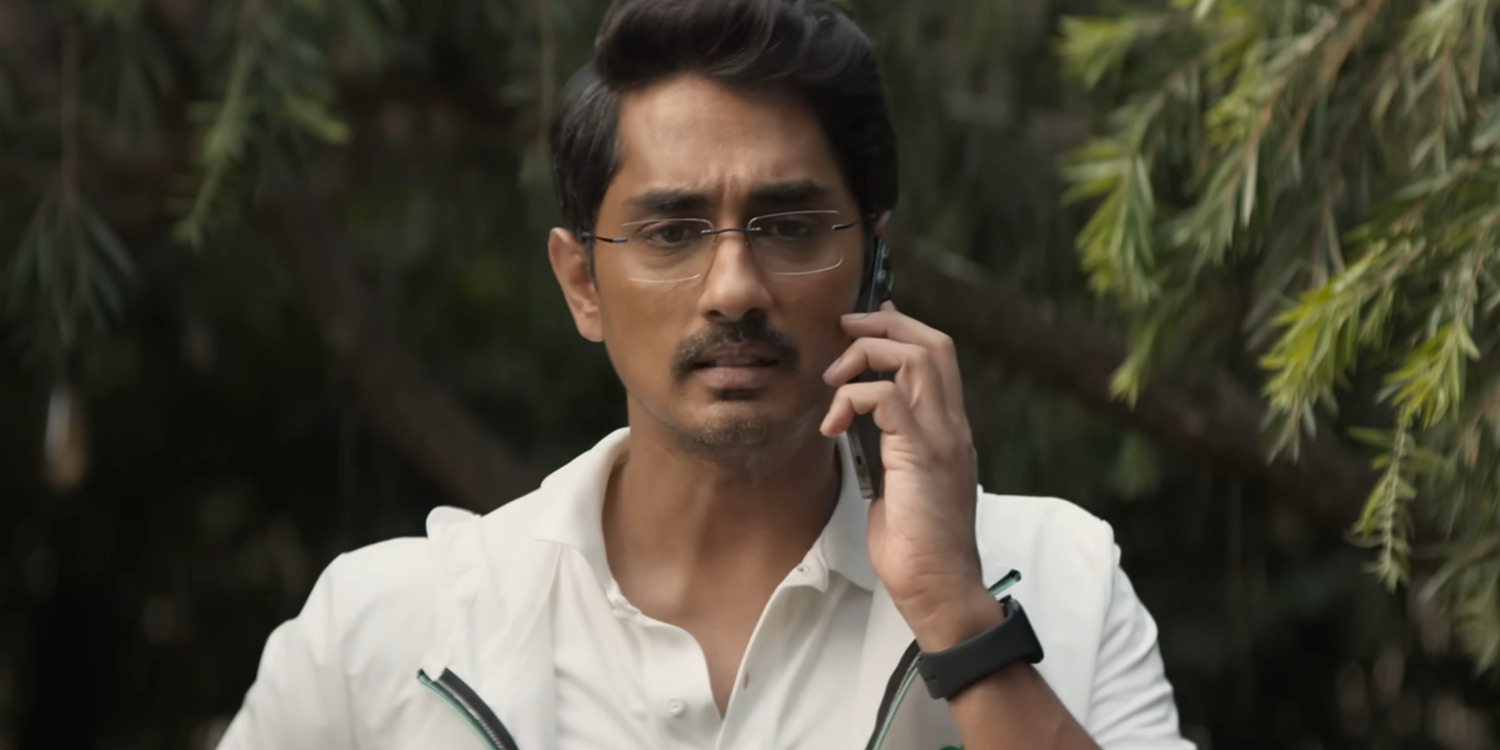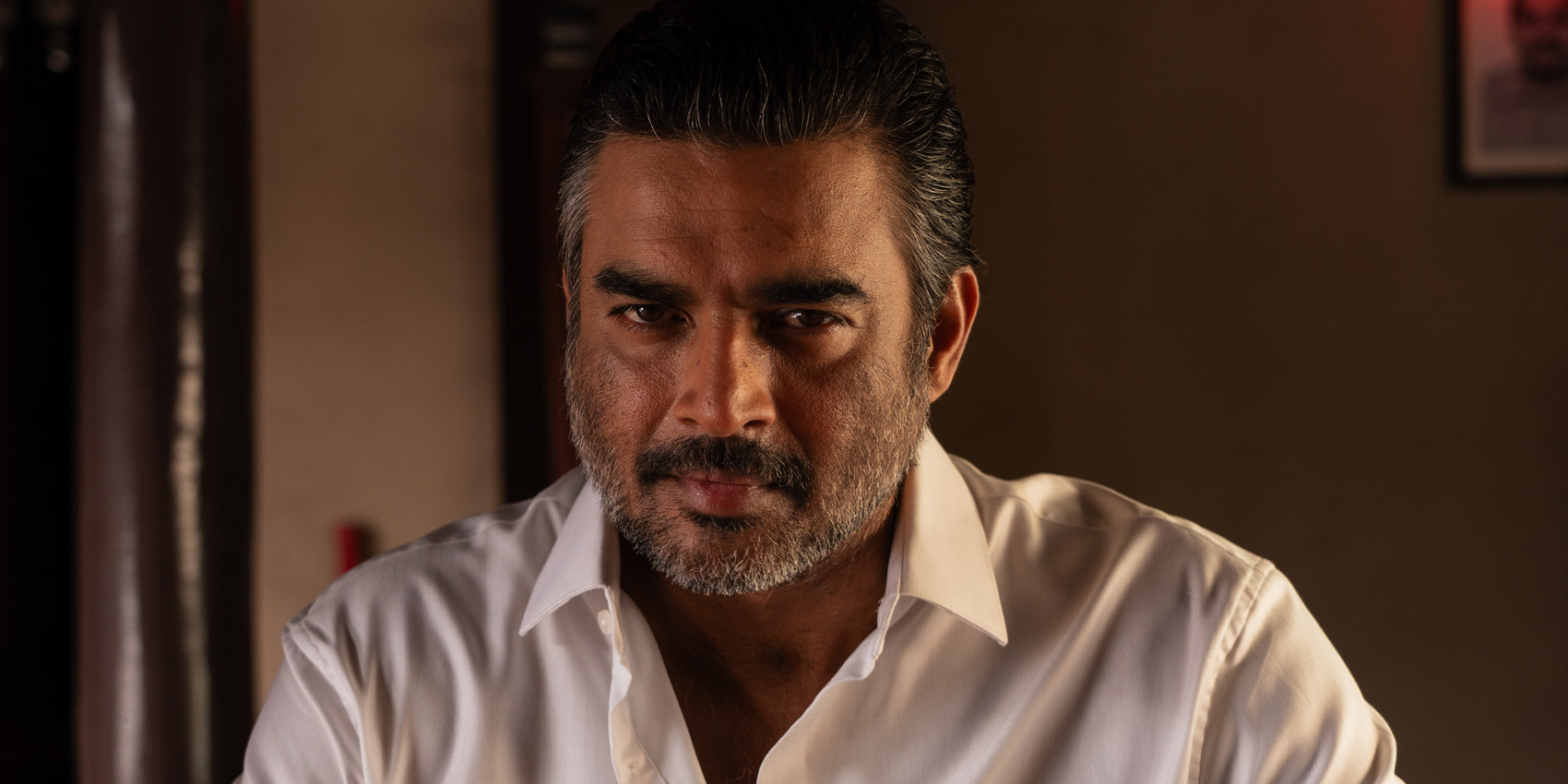Netflix’s ‘Test’ is a Tamil-language film that tells a riveting story about three individuals—a scientist, a teacher, and a cricketer—whose lives unravel in unexpected ways during a Cricket Test match. For Arjun Venkatraman, a cricketer in the twilight years of his career, the upcoming India vs. Pakistan test match series might just be the most crucial game of his life. However, simultaneously, the lives of his childhood friend, Kumudha, and her husband, Saravanan, take adverse turns as both spouses’ respective dreams come under threat. Consequently, as the pressure increases and the stakes rise, Arjun finds himself backed into an impossible corner where he must choose between his life and his love for the game.
S. Sashikanth’s directorial debut explores the thrilling psychologies of three individuals whose lives are balanced on one precarious match. As such, the story of the sports drama film primarily delves into themes relating to the bustling Indian cricket industry, particularly the adversities—including match-fixing attempts—that the players face. Naturally, this captivating depiction of the sport and its politics, as experienced by the character of Arjun Venkatraman, is bound to invite some intrigue.
Test is a Fictional Story That Explores Narcissism as a Positive Trait
The varied, nuanced experiences and scenarios that the narrative of ‘Test’ traverses present a grounded premise that opens up plenty of space for universal resonance and relatability. However, despite its sense of realism, the film is primarily a work of fiction that only takes indirect inspiration from real-life instances. Thus, the overarching plot—of a struggling scientist using blackmail against a cricketer to fix a monumental match—remains confined to its world of fictionality. The narrative, penned by Suman Kumar and S. Sashikanth, found its start all the way back in 2012 when the latter filmmaker began penning the script. From there, it took until 2020, during the emergence of the COVID-19 pandemic, for Sashikanth to start working on bringing the project to life.

Although Sashikanth’s project initially took a more plot-focus route, the filmmaker eventually amended the story, including more psychologically driven elements. He was particularly eager to explore the psychologies of cricket players and how the globally relevant duties that come with their profession influence their choices in life. This compelled him to equip a unique perspective on the concept of narcissism, narratively inspected as a positive trait that drives one’s motives and actions. “Sometimes, narcissism is looked at with a very negative connotation, but that kind of DNA is required for the ones to go on to become leaders,” Sashikanth shared in a conversation with The Hindu. “It gave me a great insight into how a sportsman would think and look at life. I wondered if that trait existed in common people as well, and that was the beginning of character development.”
Test Strives for an Authentic On-Screen Portrayal of Professional Cricket
S. Sashikanth’s focus on the more underlying thematic elements of ‘Test’ certainly informs the authenticity behind its characters. Yet, the film also relies heavily on the more technical aspects of its connection to the celebrated sport to cement its overarching sense of realism. The central test match series that unfolds in the story isn’t based on any specific real-life instance. Thus, the filmmaker leaned on other facts of the film to garner visual and narrative authenticity. Sashikanth’s own passion for the sport played a notable role in shaping the project’s portrayal of Cricket and its cultural impact. For the same reason, the filmmaker found it ideal to set the thrilling tale—that puts its protagonists through feats of moral assessments—against the backdrop of a Test Cricket match.

Sashikanth believed the prestigious format of Test Cricket perfectly reflected the challenges faced by Arjun, Kumudha, and Sara within the narrative. However, even beyond the thematic resonance, he wanted to ensure his depiction of the sport remained visibly realistic. As such, the filmmaker equipped filming methods that mirrored the actual live coverage of the sport for the scenes of the on-field match. From shooting on actual cricket grounds to employing real match telecast cameras and actual professional cricketers to make up the on-screen team, ‘Test’ seeks authenticity at every corner.
Alternatively, a significant aspect of the story also underlines the phenomenon of match/spot-fixing at crucial games. Although, much like the match itself, this element of the film is also largely fictionalized, it taps into a relevant part of cricket culture. As divulged by prominent former Pakistani cricketer Mudassar Nazar at the Cricket Predicta Conclave in 2024, the public has long-held assumptions about match-fixings, especially in the India vs. Pakistan games. “There was a lot of pressure on the Pakistan team because every time they lost a game, people thought the game was dubious, the game was fixed. Nobody was prepared to accept that they actually lost to a better team,” he said. As such, the inclusion of such an element in the on-screen match plays on the audience’s expectations and associations, creating a sense of familiarity.
The Character of Arjun Venkatraman Finds Partial Inspiration in a Real-Life Cricketer
In the development of ‘Test,’ S. Sashikanth found a notable inspiration in the real-life story of an Indian cricketer. This ended up becoming a significant influence in the creation of Arjun’s character. During the early stages of writing the script, the filmmaker came across a story about Virat Kohli, the celebrated cricketer and former captain of the Indian team. At the age of 18, when Kohli was set to face the 2006 Ranji Trophy match front the Delhi team in a game against Karnataka, a jarring tragedy occurred in the player’s personal life. His father, Prem Kohli, reportedly experienced a heart attack and passed away on December 19. Still, Kohli went on to play the match with immense focus and skill.

Ultimately, Kohli’s overwhelming choice had a great impact on the match and went on to define the young player’s career. Recalling the same incident in an interview with DT Next, Sashikanth said, “When he (Kohli) was asked about that in an interview, he said there was no choice of not playing the match. The mental toughness that a sportsperson requires is massive.” Consequently, this real-life instance ended up inspiring the filmmaker to mold his film’s narrative and its character after the single-minded determination exhibited by Kohli in 2006. Inevitably, remnants of the off-screen cricketer’s experiences end up bleeding into the character of Arjun, who finds himself in a similar situation of choosing between his personal life and his cricket career.
Still, while Kohli and his 2006 experience remain a source of inspiration for Arjun’s character, the latter’s characterization wasn’t based on the real-life cricketer. Instead, on-screen cricketer’s personality and experiences were kept confined to fictionality to afford him certain creative freedom. Still, actor Siddharth Suryanarayan was eager to infuse his character, Arjun, and his physicality with as much realism as possible. “(So,) People have got used to watching the sport closely. They look for perfection. Therefore, you cannot pretend,” the actor told Mathrubhumi. “That was my main fear. We have tried to be as true to the passion and beauty of the character that I play in the film.”
Read More: Is Pulse a True Story? Is Danny Simms Based on a Real Doctor?


